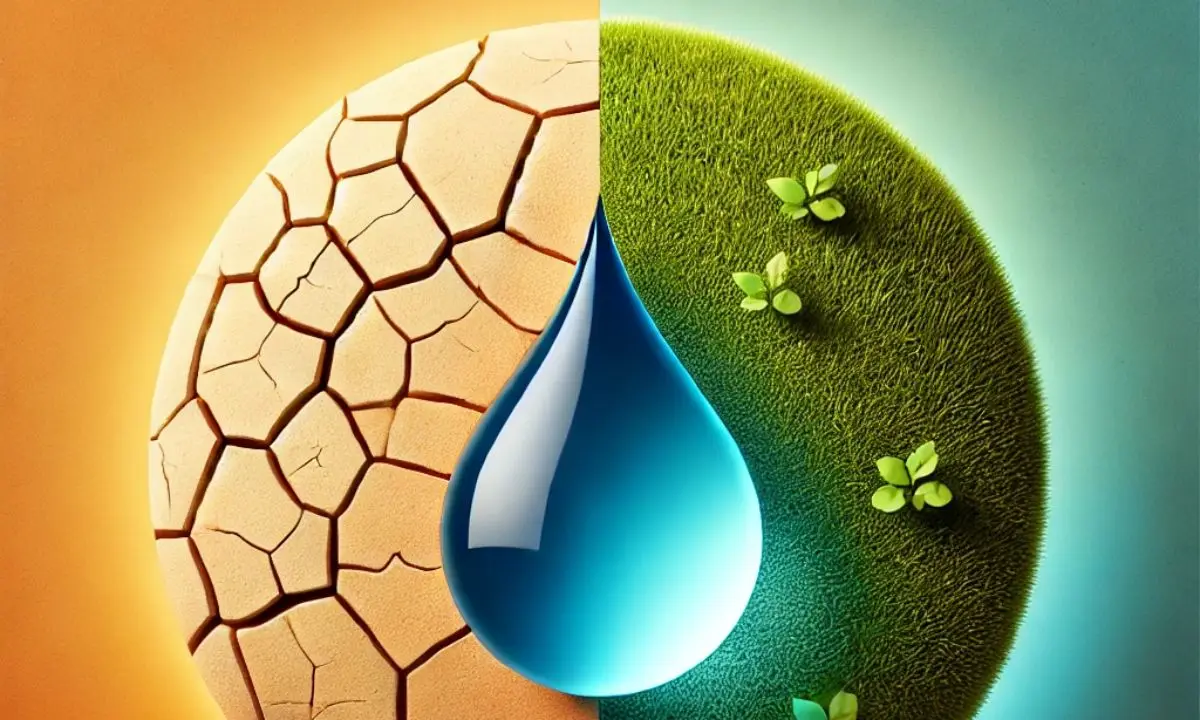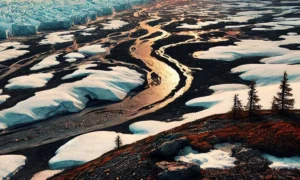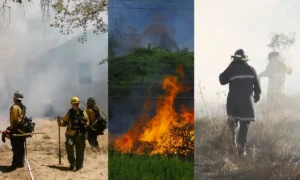Earth’s Freshwater Crisis: Shocking NASA Data Reveals Abrupt Global Drop Since 2014

A study published in Surveys in Geophysics found that Earth’s total freshwater levels have been in sharp decline since May 2014.
A team of international scientists used data from Gravity Recovery and Climate Experiment (GRACE) and GRACE Follow On (GRACE-FO) missions and found that land-based freshwater reserves, including surface water and groundwater, from 2015 through 2023 have decreased by 290 cubic miles (1,200 cubic kilometers) compared to the 2002–2014 average.
One of the study’s authors, Matthew Rodell, a hydrologist at NASA’s Goddard Space Flight Center in Greenbelt, Maryland, stated that this loss of freshwater is equivalent to 2.5 times the volume of Lake Erie. The team of scientists used observations from the GRACE and GRACE-FO satellites, which are operated by the German Aerospace Center, the German Research Center for Geosciences, and NASA.
“Global terrestrial water storage, excluding glaciers and ice sheets, declined abruptly between May 2014 and March 2016, with a corollary increase in sea level.”
Rodell, M., Barnoud, A., Robertson, F.R. et al. An Abrupt Decline in Global Terrestrial Water Storage and Its Relationship with Sea Level Change. Surv Geophys (2024). https://doi.org/10.1007/s10712-024-09860-w
The expanding droughts around the world, as snow and rainfall fail to replenish groundwater, are majorly due to the expansion of agricultural land and production, farms, and urbanization, which continue to pump more and more water from land sources, especially from underground reservoirs.
Also Read: Marine Pollution: Causes, Effects, and Solutions
Droughts and scarcity of water lead to famines, conflicts, and poverty around the world and especially in poorer regions.
Declining groundwater amounts have increased reliance on limited resources of freshwater for human consumption and food production. This has suggestively intensified the drought impacts and increased risks of famine and poverty.
Key Highlights from the research:
- A severe drought in Brazil starting in 2014 reportedly triggered the drop. This was shortly followed by droughts in Australia, South America, North America, Europe, and Africa.
- The period from 2015–2023 lists 13 of the 30 most intense droughts ever recorded by GRACE satellites.
- Global warming may be a key factor, the report suggests. Higher temperatures cause more water to evaporate and the atmosphere to hold more water vapor. This leads to more frequent and severe droughts.
- More precipitation might occur in many regions as part of the water cycle. However, more extreme rainfall events mean water runs off instead of replenishing soil and groundwater, researchers say.
- The 2014–2016 El Niño was one of the strongest since 1950. This greatly altered global rainfall patterns and contributed to this freshwater depletion. However, freshwater levels have not recovered since 2014 despite it fading.
The warmest years on record coincided with this decline. 2023 was the driest year for global rivers in three decades, as reported by the World Meteorological Organization (WMO). WMO in their State of the Climate 2024 update reported that this past decade (including year 2024) was the hottest in 175 years of observational record.
Also Read | COP29: What’s Next for Global Climate Policy?
2024 is “virtually certain” to be the hottest year on record, according to the European Copernicus Climate Change Service. This potentially signals a long-term warming trend.
Scientists stress that while global warming appears to play a major role, uncertainties in climate predictions mean it is difficult to pinpoint exact causes.
The future trajectory of Earth’s freshwater remains uncertain. These findings raise concerns about the planet’s ability to sustain its water resources amidst the climate change crisis.
“We don’t think this is a coincidence,” says Matthew Rodell. “It could be a harbinger of what’s to come.”






